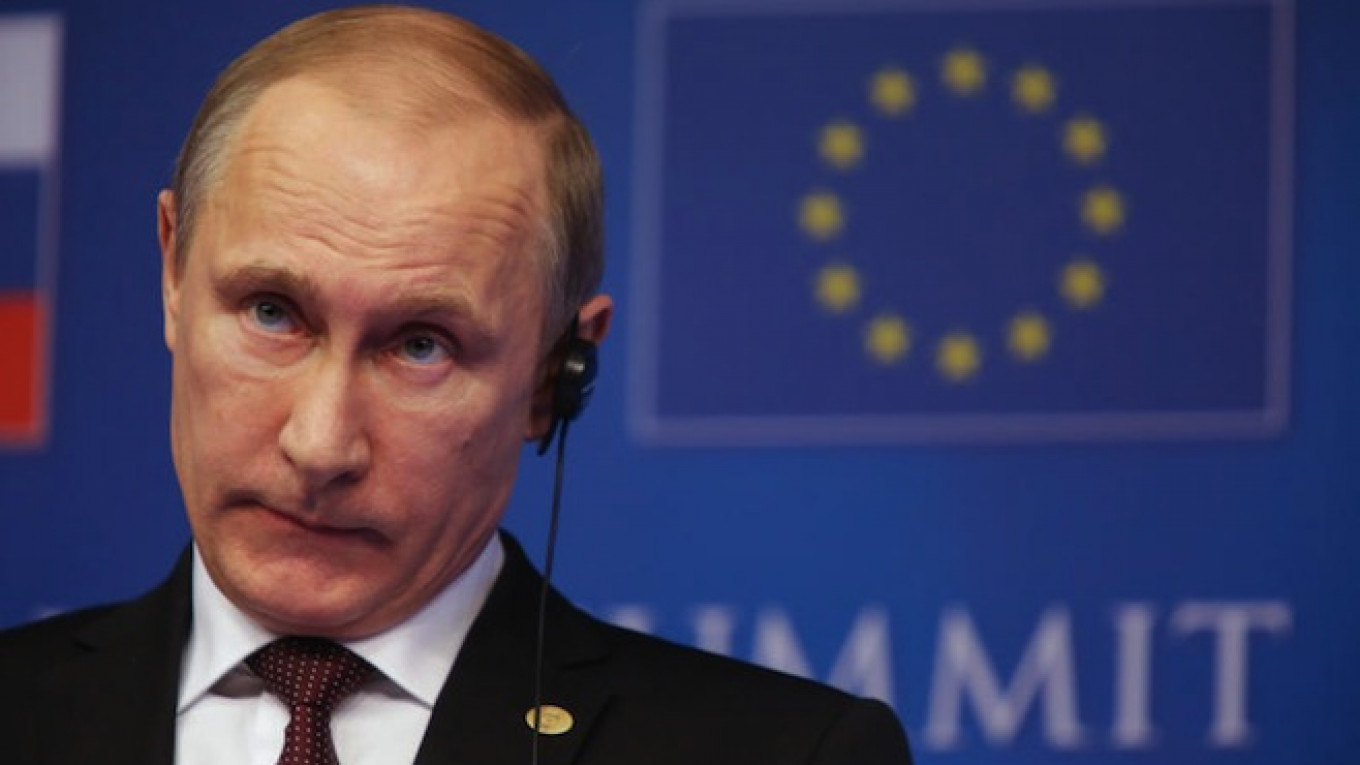A Dutch protest movement will force the government to stage a referendum on the controversial association agreement between the EU and Ukraine, which is set to go into force at the end of this year despite protest from Russia.
The Dutch Electoral Board on Wednesday declared valid more than 420,000 signatures collected in less than six weeks by the GeenPeil protest movement, 120,000 more than required for a referendum.
In accordance with a recently passed law, the Dutch government now has to stage the referendum within the next six months.
The results will not be binding for the Dutch government, which has already ratified the agreement. But a “no” vote would send a political signal to The Hague that could be hard to ignore, said Jan Roos, the organizer of the GeenPeil movement.
The Euroskeptic GeenPeil platform, which organized a mass media campaign urging people to back the call for a referendum, warned that the incorporation of Ukraine into Europe's sphere of influence would antagonize Russia.
Russia's relations with the West are arguably already at a post-Cold War low over the Ukraine crisis and the annexation of Crimea.
“[The deal] is a case of land grabbing and military show of force between opposing ideologies. It could be seen as a revival of the Cold War,” a video on the platform's website said, adding the association agreement was a “geopolitical hornet's nest.”
The association agreement, which has been years in the making, triggered violent protests on Kiev's Independence Square in February last year, after then-Ukrainian President Viktor Yanukovych refused to sign the agreement at the last moment in favor of closer ties with Moscow.
The resulting protest movement toppled Yanukovych from power and plunged Ukraine into a still-ongoing civil war between the new government in Kiev and pro-Russian separatists in eastern Ukraine.
Ukraine's new parliament ratified the agreement in September last year, with President Petro Poroshenko hailing the move as a victory, saying “no nation has paid such a high price to become Europeans.”
The treaty is set to enter into force provisionally on Dec. 31, European Trade Commissioner Cecilia Malmstrom announced in May. But the agreement, which economically ties Kiev to the 28-member bloc, can only go into full force once it has been ratified by all 28 European member states.
The Dutch protest movement appears to be playing into the hands of the Kremlin, which has repeatedly demanded the deal be delayed or annulled, threatening to raise tariffs on Ukrainian products or cut Ukraine off from Russian markets altogether.
Russian Economic Development Minister Alexei Ulyukayev said last month that the chances of avoiding a Russian trade embargo on Ukraine were not very great, Reuters reported.
But rather than supporting Moscow, the Dutch activists said a “no” vote would curtail the Kremlin's maneuvering power.
“The association agreement provides [Russian President Vladimir] Putin with an alibi for expansion. We're warning against providing him with such an alibi,” Thierry Baudet, co-organizer of the protest movement, told The Moscow Times in written comments.
The referendum will most likely be staged during the Dutch EU presidency, which begins in January next year, and will need a turnout of at least 30 percent of the population to be considered valid, according to the Dutch referendum law.
Contact the author at e.hartog@imedia.ru
A Message from The Moscow Times:
Dear readers,
We are facing unprecedented challenges. Russia's Prosecutor General's Office has designated The Moscow Times as an "undesirable" organization, criminalizing our work and putting our staff at risk of prosecution. This follows our earlier unjust labeling as a "foreign agent."
These actions are direct attempts to silence independent journalism in Russia. The authorities claim our work "discredits the decisions of the Russian leadership." We see things differently: we strive to provide accurate, unbiased reporting on Russia.
We, the journalists of The Moscow Times, refuse to be silenced. But to continue our work, we need your help.
Your support, no matter how small, makes a world of difference. If you can, please support us monthly starting from just $2. It's quick to set up, and every contribution makes a significant impact.
By supporting The Moscow Times, you're defending open, independent journalism in the face of repression. Thank you for standing with us.
Remind me later.






